Bipolar Disorder Treatments
Having bipolar disorder can make life difficult. At Cornerstone, we’re here to help. Get information on Bipolar 1 and Bipolar 2, including effects, signs and symptoms, and treatment.
Begin your insurance verification today

Our Bipolar Disorder Center in Scottsdale, AZ
At Cornerstone, our Behavioral Health Center recognizes the profound challenges posed by living with Bipolar Disorder. Our team, comprising psychiatrists, therapists, peers, and care managers, operates in a judgment-free environment, ensuring you receive the understanding and support you need..
Our goal is to provide a complete support system and provide personalized treatment plans to effectively manage symptoms, enhance self-awareness, develop coping strategies, stabilize mood swings, and encourage meaningful relationships and engagements. We are committed to supporting you through the highs and lows of your journey, providing guidance and assistance at every step.
Understanding Bipolar Disorder
What is Bipolar Disorder?
Bipolar 1 vs. Bipolar 2
Risk Factors
Diagnosis
Similar Disorders
Bipolar disorder is a mental health condition characterized by extreme mood swings that include emotional highs, often called mania or hypomania, and lows such as depression. These mood swings can last for days, weeks, or even longer, and can significantly impact your ability to function in everyday life. There are two main types of bipolar disorder:
- Bipolar I: This type involves manic episodes lasting at least seven days or requiring hospitalization, often followed by depressive episodes.
- Bipolar II: Involves hypomanic episodes (less intense than manic episodes) and depressive episodes, but no full manic episodes.
Bipolar 1 disorder involves manic episodes, which are described as extreme emotional highs and lows These episodes can last for at least seven days and may require hospitalization.
Bipolar 2 disorder is similar to Bipolar 1, however, there is an absence of full manic episodes. This means that those with Bipolar 2 experience less intense emotional highs and lows that often last for days, but do not significantly interfere with everyday life.
Risk factors for Bipolar Disorder encompass a mix of genetic, environmental, and personal characteristics that increase an individual’s likelihood of developing the condition.
Here are some important risk factors to consider:
- Genetics: having a family member, especially a first-degree relative with bipolar disorder, significantly raises one’s risk.
- Environmental factors: experiencing high levels of stress or traumatic events, can also trigger the onset of bipolar symptoms
- Substance abuse
- Personality traits: high levels of neuroticism or those who experience rapid mood fluctuations, may be more susceptible.
- Hormonal imbalances
Diagnosing Bipolar 1 Disorder involves a comprehensive assessment of symptoms, lifestyle, and medical history, focusing on the presence of at least one manic episode, which depressive episodes may follow. Evaluators must consider the duration, intensity, and impact of mood swings and changes in behavior, thought processes, and overall functioning.
Diagnosing Bipolar 2 Disorder is similar. Our professionals will conduct a clinical evaluation that includes medical history and family history, mood charting, and psychological testing, all following the criteria set forth by the DSM-5 (Diagnostic and Statistical Manual of Mental Disorders, 5th Edition).
Bipolar disorder symptoms often present in similar fashion to other mental health conditions such as Schizophrenia, PTSD, or Borderline Personality Disorder. Our team is dedicated to gathering detailed information from you and your family members for a complete understanding of the condition and an accurate diagnosis.
Our Bipolar Disorder Programs

Residential Programs
Our residential programs for Bipolar Disorders provide around-the-clock care in a safe, supportive environment. With a mix of therapy, medication, and holistic approaches, this immersive program helps you address the core issues behind your Bipolar Disorders and develop lasting coping skills for long-term recovery.

Outpatient Programs
Our outpatient treatment for Bipolar Disorders provides flexible, part-time care, enabling individuals to focus on recovery while keeping up with daily responsibilities. With therapy, medication management, and supportive services, we guide you through your symptoms and recovery journey.

Virtual IOP
Our Virtual Intensive Outpatient Program (IOP) for Bipolar Disorders offers comprehensive, convenient support from the comfort of home. With individual therapy, group counseling, and secure online resources, it’s a great option for those who need flexible care but want the full support of a structured program.

Cognitive Behavioral Therapy
Cognitive Behavioral Therapy is a highly effective treatment for Bipolar Disorders. It involves identifying and challenging negative thought patterns and behaviors to alter unwanted anxious thoughts.

Medication Management
Medication management is often used in conjunction with therapy. Medications can help regulate brain chemistry and alleviate symptoms.

Holistic Therapies
We emphasize holistic therapies that address the mind, body, and spirit. This can include mindfulness practices, yoga, and nutritional counseling. These practices help you to manage emotions and reduce stress. By focusing on being present without judgment, you can gain tools to create a strong foundation for recovery.

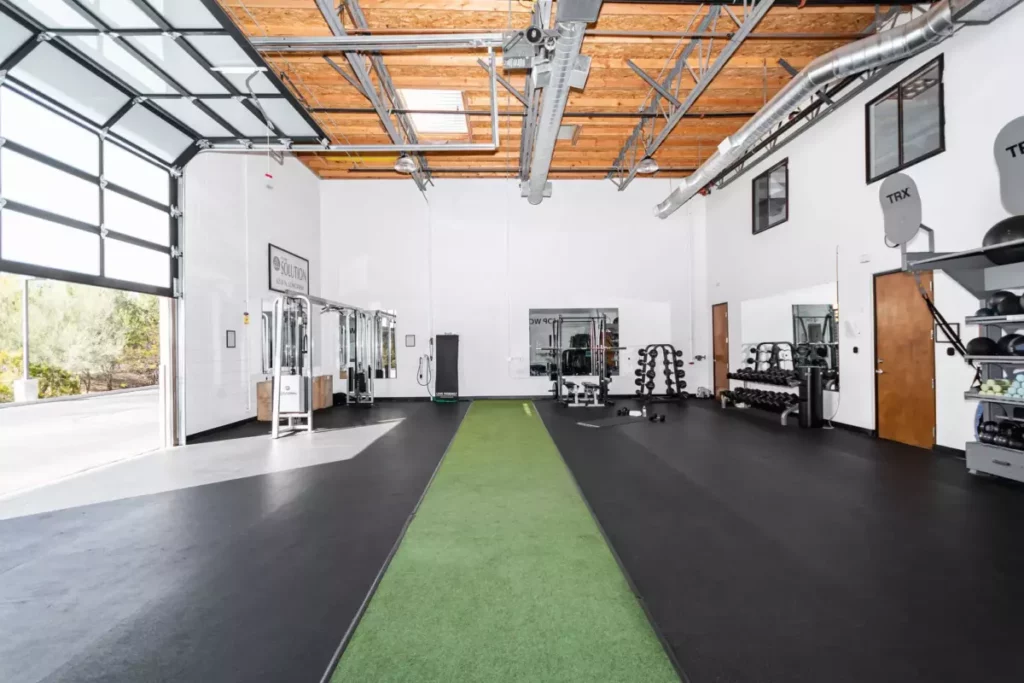
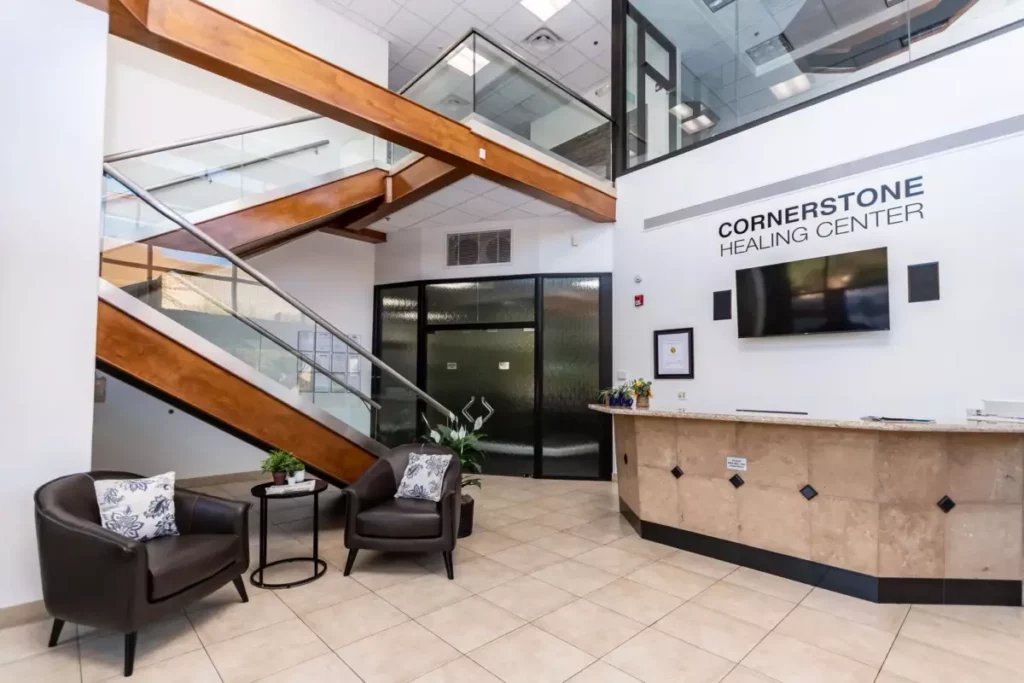


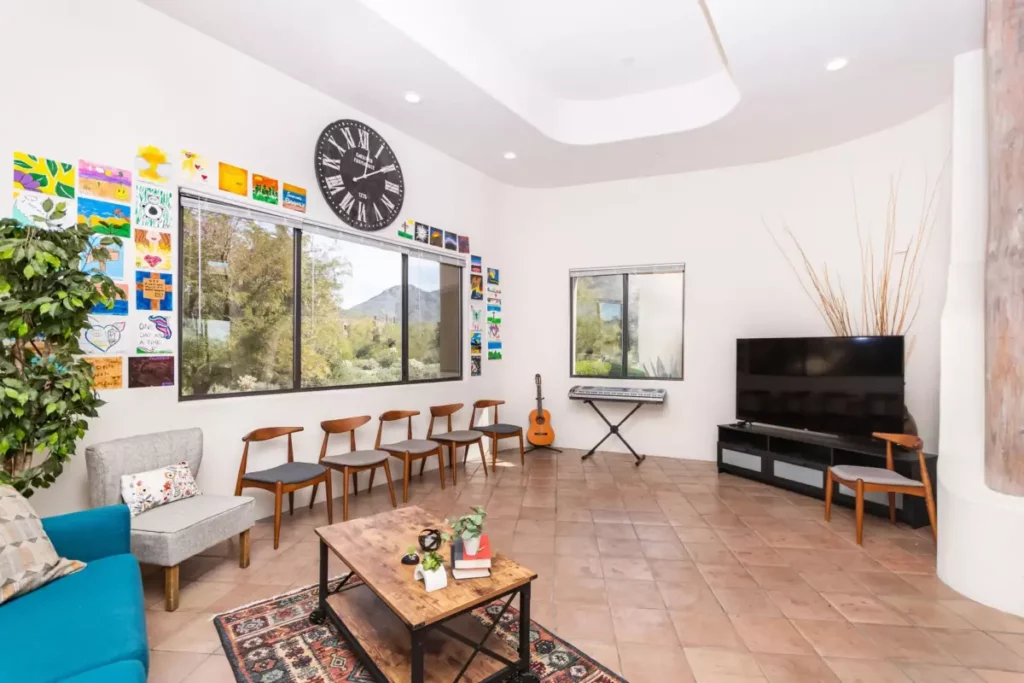

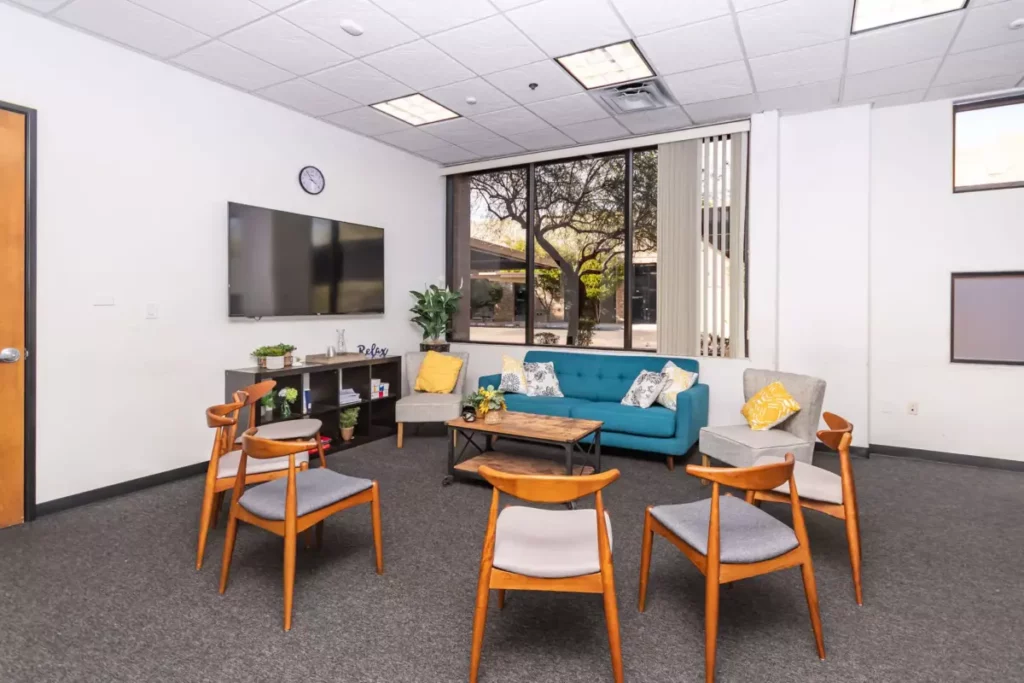





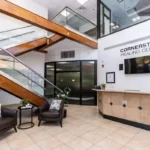








Our Scottsdale Behavioral Health Center
Cornerstone has a Behavioral Health Center treatment located in Scottsdale that offers lifesaving mental health treatment services. The environment we create for you promotes healing and focus while also ensuring your comfort. We have group and learning rooms that provide space for collective therapy sessions and educational workshops.
We have individual therapy rooms that provide privacy and comfort for one-on-one sessions, allowing our clients to work with their therapists on resolving personal issues. You have access to a large fitness facility as well.
At Cornerstone Healing Center, we are committed to delivering a holistic approach to behavioral health treatment, blending comfort, therapy, and personal development for a full experience.
Benefits Our Bipolar Disorder Treatments
Our Arizona Behavioral Health Center is designed to provide a supportive and safe space so you can heal at your own pace.
Integrative Recovery Approach
Our integrative approach addresses the physical, mental, and emotional sides of recovery, with a deep understanding of your journey.
Dedication Clinical Team
Through counseling, we offer a confidential space to explore the root symptoms of your disorder, to empower you on your recovery journey.
Comprehensive Care
We’re here to walk alongside you, creating a plan that truly resonates with where you are in life and where you want to go
Broad Treatment Options
From intensive support to flexible options, our treatment programs are designed to meet you wherever you are in your journey to recovery.
What to Expect
- An assessment of your individual needs and goals to create a personalized addiction rehabilitation plan.
- A treatment plan for mental health or co-occurring (or dual diagnosis) behavioral health conditions.
- Evidence-based therapies include cognitive behavioral therapy, dialectical behavior therapy, and trauma-informed care.
- Holistic approaches include yoga, meditation, art therapy, and music therapy
- Nutrition counseling and physical fitness activities for overall health and wellness.
- Family involvement in the recovery process through Common Ground or family sessions.
- Aftercare planning that includes relapse prevention strategies for long-term success in sobriety.
Client Family Testimonial
Meet Our Arizona Treatment Team
Meet our experienced masters-level treatment professionals passionately dedicated to providing compassionate, expert care in our state-of-the-art rehabilitation facilities and recovery centers in Scottsdale, AZ and Phoenix, AZ.
Clinical Director of Scottsdale Program
Eboni Fields, MS LPC
Eboni Fields, MS LPC, is a seasoned Clinical Director who brings over a decade of experience in behavioral health and substance abuse. She is a licensed professional counselor with a Masters in Mental Health Counseling from Grand Canyon University.
More About EboniClinical Director of Phoenix Program
Nate Bush, LCSW
Nate began his recovery journey in 2010 and earned a Master's in Social Work from ASU. He’s been in the Behavioral Health field since 2013. Specializing in CBT, DBT, and grief, Nate is now the Clinical Director of our Phoenix program, underlined by his passion for helping others who struggled with substance abuse issues as he did.
More About NateWhen is inpatient or residential treatment appropriate for Bipolar Disorder?
Inpatient or residential treatment may be necessary when Bipolar 1 Disorder symptoms are severe, particularly during manic episodes that might pose a risk to oneself or others. This level of care provides a structured environment, intensive therapy, and continuous support, crucial for managing severe episodes.
It is usually not necessary for Bipolar 2.
Do you accept my insurance for your Bipolar Disorders treatments?
Most likely, yes! Cornerstone accepts most major insurances. To be sure, you can fill out our commitment-free form to verify your coverage.
What level of care is needed to treat Bipolar 1?
The level of care required for Bipolar 1 Disorder depends on the severity and frequency of the manic and depressive episodes. Outpatient treatment, including medication management and psychotherapy, is often effective. However, more severe or uncontrolled episodes may require intensive outpatient programs or inpatient care. Consulting with a mental health professional is essential to determine the best course of treatment.
How can I support a loved one with Bipolar Disorders?
Supporting someone with a Bipolar Disorder involves empathy, understanding, and patience. Encourage them to adhere to their treatment plan and medication regimen. Be supportive during both manic and depressive episodes, and help them recognize early signs of mood changes. Educating yourself about the disorder can also be beneficial in providing effective support.
Let's begin the journey together
Frequently Asked Questions
Knowledge base
Bipolar Disorder Information
Get Started Now
Call and speak with one of our caring team members about help for you or a loved one.

